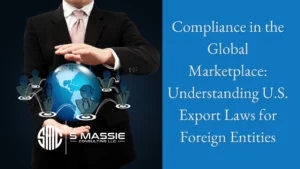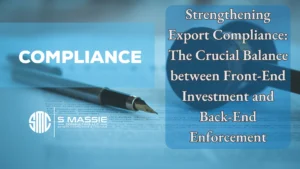The EU-UK Accord, a significant milestone in the history of the European Union and the United Kingdom, has set the stage for a new chapter in their relationship. After years of negotiations and uncertainties surrounding Brexit, the accord provides a framework for both parties to move forward and establish a more stable and predictable future. In this article, we will explore the key agreements, implications, opportunities, challenges, and prospects that arise from this accord.

Background of the EU-UK Accord
To understand the significance of the EU-UK Accord, let’s first review the context in which it was reached. Following the Brexit referendum in 2016, the United Kingdom decided to leave the European Union, triggering a complex process of disentangling their political, economic, and social ties. After multiple rounds of negotiations, the EU and the UK reached an agreement on their future relationship, which was formally ratified and came into effect on May 2020.
Key Agreements and Implications
Trade and Economic Relations
One of the primary focuses of the EU-UK Accord is to establish a new framework for trade and economic relations. The accord outlines provisions for tariff-free and quota-free trade in goods, while also addressing issues related to services, intellectual property, and public procurement. This agreement brings a level of certainty to businesses on both sides, ensuring smoother cross-border transactions and reducing disruptions in supply chains.
Border and Customs Arrangements
Border and customs arrangements have been a significant point of contention during the Brexit negotiations. The accord sets out specific provisions to manage the movement of goods between the EU and the UK, including the establishment of customs procedures and regulatory checks. While these arrangements aim to minimize disruptions, they also introduce new administrative requirements that businesses must adapt to.
Security and Cooperation
Maintaining security cooperation was a crucial aspect for both the EU and the UK. The accord outlines measures for law enforcement cooperation, data sharing, and intelligence sharing to ensure continued collaboration in combating crime, terrorism, and cyber threats. While the accord provides a foundation for security cooperation, ongoing discussions will be required to address specific areas of concern.
Mobility and Travel
The EU-UK Accord also addresses mobility and travel arrangements for citizens. While EU citizens’ freedom of movement no longer applies to the UK, the accord includes provisions for visa-free travel for short-term visits and arrangements for social security coordination. However, the full impact of these changes on individuals and businesses will become clearer as the new arrangements are implemented.
Regulatory Alignment
Regulatory alignment was a contentious issue during the Brexit negotiations. The accord sets out a framework for regulatory cooperation, aiming to minimize regulatory barriers and maintain a level playing field. This agreement provides some certainty for businesses operating in sectors heavily regulated by EU standards, such as pharmaceuticals and automotive industries.
Opportunities for Businesses
The EU-UK Accord brings forth several opportunities for businesses on both sides to thrive in the new post-Brexit landscape. Let’s explore some of these opportunities:
Trade Opportunities
With tariff-free and quota-free trade in goods, businesses can explore new markets and expand their export potential. The removal of trade barriers opens up avenues for growth and allows businesses to diversify their customer base.
Market Access
The accord provides continued market access for both the EU and the UK, ensuring that businesses can maintain their existing customer relationships and supply chains. This stability allows for long-term planning and investment in new market opportunities.
Regulatory Stability
By establishing regulatory cooperation, the accord provides stability and predictability for businesses operating in sectors heavily regulated by EU standards. This cooperation helps businesses navigate regulatory complexities and ensures a smoother transition for compliance.
Challenges and Adjustments
While the EU-UK Accord offers opportunities, it also presents challenges and adjustments that businesses need to address:
Impact on Supply Chains
The new border and customs arrangements introduced by the accord may impact supply chains, particularly for businesses with complex international operations. Companies will need to reassess their supply chain strategies, identify potential bottlenecks, and explore alternative logistics routes.
Financial Services
The accord does not provide comprehensive arrangements for financial services, which were a significant contributor to the UK’s economy. Businesses in the financial sector will need to navigate new regulatory frameworks and explore new opportunities for market access.
Fishing Rights
Fishing rights were a highly contentious issue during the negotiations. The accord includes provisions for a phased approach to changes in fishing rights, allowing both parties to adjust gradually. However, the fishing industry will need to adapt to new quotas and regulations.
Future Prospects and Cooperation
The EU-UK Accord sets the stage for future prospects and cooperation between the two entities. While challenges exist, there are opportunities to build new partnerships and resolve outstanding issues:
Building New Partnerships
Both the EU and the UK can now explore new partnerships and collaborations outside the previous EU framework. This opens avenues for innovation, research, and trade with other global partners.
Resolving Outstanding Issues
While the accord covers various aspects of the EU-UK relationship, there are still outstanding issues that require further negotiation and resolution. Both parties need to engage in constructive dialogue to address these issues and ensure a smooth transition.
Conclusion
The EU-UK Accord represents a significant milestone in the post-Brexit era, providing a framework for the future relationship between the European Union and the United Kingdom. While challenges and adjustments lie ahead, the accord offers opportunities for businesses to explore new markets, maintain market access, and ensure regulatory stability. Moving forward, building new partnerships and resolving outstanding issues will be crucial for establishing a positive and cooperative relationship.
By Sarah Massie, President of S Massie Consulting LLC
It’s been interesting to watch the transition as the United Kingdom has completed Brexit (Britain, exiting the EU). I was in London just 3 weeks after the vote to leave the EU was passed in 2016… our taxi driver was very willing to share all his opinions! Now, over four years later, the UK has finally reached an accord with the EU to keep trade going as smoothly as possible. However, it sounds
like the deals leaves much to be desired for service exports such as finance.
There are still kinks to work out, including the expected bottlenecks within UK customs. The New York Times reported on the expected difficulty that will be created by the current shortage of “customs agents to handle the tens of millions of customer declarations that are now needed.”
Moving forward, the UK is now free to negotiate its own Free Trade Agreements, and the US-UK FTA talks began in May 2020. Congress reported that negotiations aim to address tariff and non-tariff barriers to trade in goods, services, and agriculture, investment, and government procurement, as well as trade-related rules.
While the EU-UK Accord provides a foundation for the future relationship between the EU and the UK, there are still areas that require further attention. The accord primarily focuses on trade and economic aspects, but issues related to service exports, such as finance, still need to be addressed. The shortage of customs agents poses a challenge for smooth customs procedures, and additional resources and training will be necessary to handle the increased volume of customer declarations.
Looking ahead, the UK’s ability to negotiate its own Free Trade Agreements presents opportunities for expanding trade relationships beyond the EU. The ongoing US-UK FTA talks aim to address various trade barriers and establish mutually beneficial arrangements in multiple sectors. These negotiations hold the potential to enhance trade in goods, services, and agriculture, fostering economic growth and creating new opportunities for businesses on both sides.
It’s important for the UK and the EU to continue working towards resolving outstanding issues and strengthening cooperation. Constructive dialogue and a collaborative approach will be essential in addressing any remaining challenges and ensuring a smooth transition.
In conclusion, the EU-UK Accord marks a significant milestone in the post-Brexit landscape. While there are areas that require further attention, the accord provides a framework for trade and economic relations, offering opportunities for businesses to explore new markets, maintain market access, and ensure regulatory stability. As both parties move forward, it is crucial to address the remaining challenges, such as service exports and customs procedures, while actively seeking opportunities to build new partnerships and expand trade relationships. By doing so, the EU and the UK can lay the foundation for a positive and prosperous future.
Reference:
Summary of U.S.-UK Negotiating Objectives
“Brexit, Explained” by The New York Times
FAQs
While the EU-UK Accord does not provide comprehensive arrangements for financial services, negotiations are ongoing. Both parties aim to address barriers and establish a framework for financial cooperation to ensure continued market access and stability in this sector.
es, there will be changes. UK citizens will no longer have the freedom of movement within the EU. However, the accord includes provisions for visa-free travel for short-term visits, allowing UK citizens to travel to EU countries without a visa for tourism or business purposes.
The EU-UK Accord establishes a framework for tariff-free and quota-free trade in goods, reducing barriers to trade. However, businesses will need to comply with new customs procedures and regulations to ensure smooth import and export processes.
The EU-UK Accord includes provisions to protect intellectual property rights, providing continuity for businesses. Existing trademarks, patents, and copyrights will generally continue to be recognized, but businesses should consult legal experts to ensure compliance with the new arrangements.
The EU-UK Accord allows the UK to negotiate its own Free Trade Agreements. This presents opportunities for businesses to expand trade relationships beyond the EU and explore new markets worldwide. The ongoing US-UK FTA talks, for example, aim to address trade barriers and create new opportunities in various sectors.


